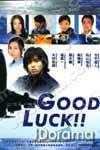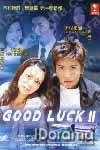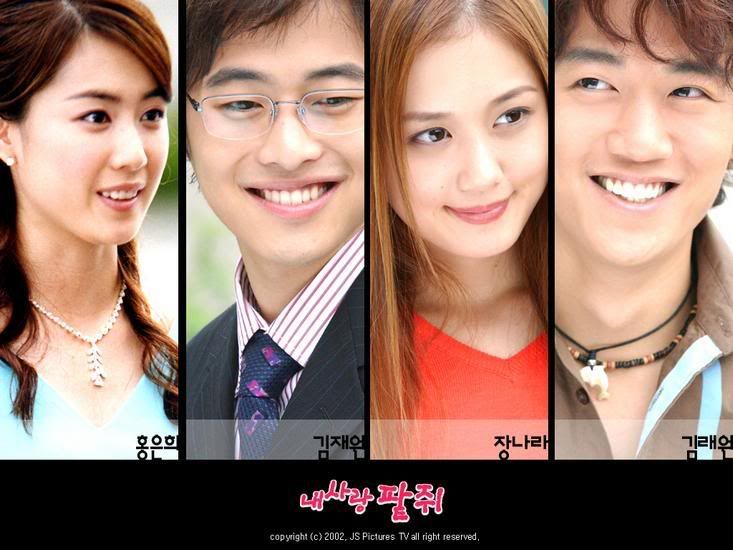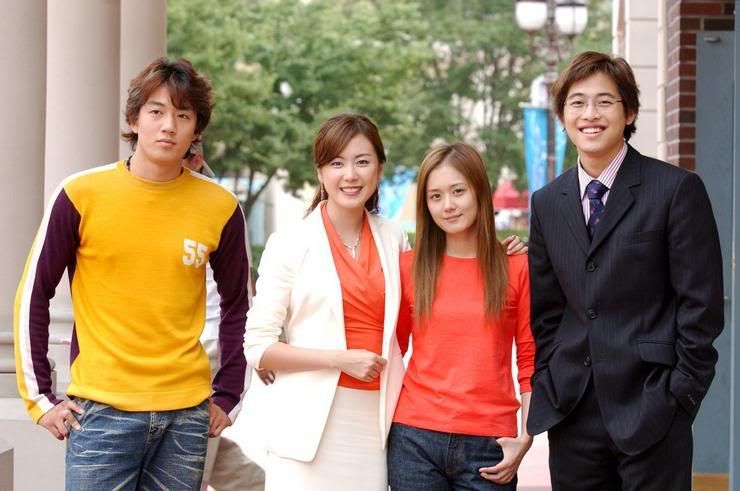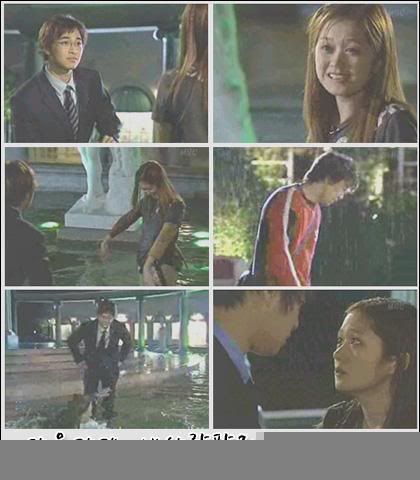Engine

Cast:
Takuya Kimura as Jiro Kanzaki
Koyuki Kato as Mitzukoshi Tomomi
I was thinking, if it was a personal choice of Takuya Kimura (being privileged as a famous actor), to be doing roles involving automobiles since he played the role of a pilot in Good Luck. In this TV series, he starred as Jiro Kanzaki, a washed up, messed up, former racing champion, who “ran away” from Europe after greeting shame when he lost an important race in his career. I had foreseen the series would be all about race, the dirty work of it— risking lives and maneuvering one’s way through a tangle of rivals and competitors. I thought gangsters, iniquitous plans, money and all that mafia, casino grandeur will all be seen, I was again on the wrong track (gee, I’m always on the wrong track!).
This drama is far more dramatic, far more enthralling and far more interesting than the cool pose and flight of Good Luck. In the story, we can the see the complexity but unpretentious scaffold of the human heart. Well, that sounds too boring for some, yet I was propelled to be glued to the tube for an entire day to be able to finish 11 episodes of this marvelous and heart-stinging effort. Maybe because the director and the writers fronted 13 adorable kids, who spiced up the drama with “juvenile, terrible, irresponsible, chaotic and bizarre” characters that remind all adults of their origins, their best times, their carefree moments of childhood.
Not only that it’s about kids in the world of adults. These kids aren’t the ordinary and happy ones who are having the best times of their lives. They are orphans, coming in with different sad and tragic stories. Some were abandoned, some lost parents because of accidents, the others were rebels whom their parents could not bear living with. All of them are living in an adoption institution that has no rules except come home, be settled on the dining table like a family whenever it is time to eat.
13 kids, who had been transferring from different homes, meeting different foster parents and teachers, suddenly encounter Jiro, a nonchalant, indifferent race aficionado, who, according to his ex-girlfriend, just like the other racers, cares about nothing but his car, his best girlfriend. Sure, Jiro hates kids for they annoy him. He can’t even stand the fact that his foster father turned their house into an orphanage when he was gone in Europe for 5 years. But no matter how he tried to avoid burdensome circumstances, fate and his compassionate and human heart, really made a terrible yet ingenious way for him to look into his self and try to wake up his child-like heart.


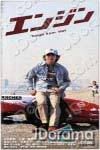
To be able to earn his right to have food at home, he was assigned to be the bus driver, and eventually, the guardian of the kids to school and elsewhere (whenever a kid runs into trouble and terrible drama, he seems to successfully and shrewdly contrive essential words and ways to enlighten their young and impulsive minds). His troublesome ways have paid off as an alternative method of teaching and counseling the kids, unlike the other teachers’ orthodox manner to educate and discipline the children.
There have been a lot of movies and series in the past that tell and show us the importance of determination, especially in our goals and dreams in life. No matter how many times we fall, we should be able to stand up, be proud and get back on track. Jiro experienced the greatest downfall in his career when he lost endorsers and his finance group to support him when he lost his title as a champion. Nevertheless, he was strong-willed to kneel down and plead before his coach to let him race again. He accepted, with all humility, the punishment, if not a tricky test, of his coach to work as a mechanic to be able to see a race car again. But still something is lacking. For whom will he win the race for? It’s still about him— winning, being on that stage, popping out the champagne, hearing the screaming voices of people cheering and going crazy over him, having queuing race car girls by his side, his wide smile plastered all over the newspaper, and of course, getting rich with the coveted prize money.
Meeting the kids and feeling the comfort of his home and his family, his goals changed. One of the great lines delivered in the series was told by Jiro’s coach: “A driver should not only think about himself because in a car, there are passengers depending on him. A driver is not only focused on getting to a destination, he is also concerned about how to safely reach that destination because of his passengers.” Jiro was hungry about winning because he made a promise with the kids that he will win, no matter what. The best driver is the one who sympathizes and empathizes with his passengers.
The love story was not emphasized. It could be either good or bad. Good, because it maximizes the story line of how Jiro empathized with the kids since he, himself, is an orphan. Also, it adds up to the wholesome image the drama tries to project (especially diverting drama into frivolous romance with puppy love-like feel when the kids giggled while having a kissing scene in the end). Bad, because as aforementioned, race car drivers’ girlfriend will always be their cars. But it’s really not so bad. In the case of Jiro, his pride and aspirations will all steer towards the good side since the ending proved that Jiro had overcome that cliché.
As a rundown, there is always a child-centered feel in every scene that one couldn’t help shedding tears for this wonderful drama. The soundtrack is good. It even features Aerosmith’s Angel and Jimmy Cliff's I Could See Clearly Now. The Japanese are really good at taking things minimally— the lesser, the simpler, the better. No superfluous and unnecessary words. Simply-- ready, set, go!



